Book World broke out in raucous debate when Roald Dahl’s British publisher announced a planned revision of some of his kids’ books in an effort to make them more acceptable to some adults.
Dahl (1916-1990) is the author of dozens of books and short stories, many for children.
According to The Daily Telegraph, Puffin, the children’s imprint of Penguin Random House, hired Inclusive Minds, a company that promotes diversity and inclusion in children’s books, to flag language deemed offensive. Puffin had a “significant responsibility,” the company noted, to protect young readers.
What edits were recommended?
In Charlie and the Chocolate Factory, Augustus Gloop is described as “fat.” The revision calls him “enormous.” Editors removed the word “ugly” entirely. In the oddest revision, “female” was removed and replaced by “woman.”
Writer Salman Rushdie called the plan “absurd censorship.”
In an interview with the BBC, Philip Pullman, author of the “His Dark Materials” series, said that it would be better to let Dahl’s books go out of print than change them without the author’s consent.
Others seemed to think that the edits were all smoke and very little fire. “Many are slight (replacing “old hag” with “old crow”) or inscrutable (“taught him how to spell and write sentences” for “volunteered to give him lessons”),” wrote editor Matthew Walther in the New York Times. “Others are needlessly ‘sensitive’ (changing “black” to “dark,” even when the connotations are not racial, or “attractive” to “kind”) but do not seriously affect the author’s meaning.”
Walther termed some edits “unintentionally hilarious”: “insisting that ‘man-eating giant’ be replaced with ‘human-eating giant,’ as in the new edition of The BFG, sounds like an unclever right-wing parody of wokeness.”
Still others point out that revision is as much a part of art as creating new works. Some writers go back to their published works for various reasons to revise. Kiese Laymon, for instance, writes movingly about paying ten times the value of his advances for two of his novels, planning to recover the copyright, revise, and re-release. “If nothing else, I hope every writer alive never ceases believing in the rugged majesty of revision,” he writes.
Since writing became a thing, written works have been adapted for other media. As I’ve learned from my dramaturg partner, rare is the Shakespeare production that isn’t dramatically cut for the stage or screen. Books beget movies and video games beget TV series and visual art begets poetry. It’s how inspiration and crossover work.
Obviously, these examples are quite different from what Puffin intended for Dahl. What’s at stake is not that changes are made. They always have been. The core question is who gets to make the changes and why.
Do we need to constantly police published writing in case it offends contemporary readers?
What if the writer’s point is to offend? Or to puncture the easy, lazy take and, in Dahl’s case, grab kids (metaphorically) by the throat with a story they cannot put down? His stories reflect not how parents and teachers and coaches and counselors see the world but how children see and feel it.
Dahl was an antisemite and likely a racist and misogynist. He isn’t the only famous writer to espouse reprehensible views, to be clear. But he was a brilliant, unique voice, especially for kids. He never intended to be comforting to read—or particularly nice. One of his goals—and the reason he’s still so popular and why his works have been frequently adapted—was to pierce the sickly sweet tone of kidlit and reflect how many children see the world, as mean, shallow, unfair, and terrifying.
Take the opening of The Witches. Dahl writes that witches are not the cute and cuddly figures of Halloween Hallmark cards with their “silly black hats and black cloaks.” No: “A REAL WITCH hates children with a red-hot sizzling hatred that is more sizzling and red-hot than any hatred you could possibly imagine.” Witches plot to get rid of any children close by. She could be the grocery store cashier or driving a fancy car with her mind always “plotting and scheming and churning and burning and whizzing and phizzing with murderous bloodthirsty thoughts.”
Phew!
Many of my writing colleagues work with so-called “sensitivity readers,” to catch often unintentional bias, objectification, racism, or just plain lazy writing. Sensitivity readers have helped me avoid, for example, using disability as a crutch to sketch characters (positive or negative). As a partnership with a writer, this collaboration can enrich the story immensely.
But without the writer in the mix, I fear that editing out perceived offensive language both erases the problem and creates new ones. Yes, children’s books—and adult books—from decades ago often reveal ways of thinking and acting that are no longer, rightly, tolerated. Yes, some of these books probably shouldn’t be the first you pull off the shelf for an eager young reader.
But the answer isn’t “cleansing” them. In this sense, I’m with Pullman. Let Dahl go out of print. What we need are more books from new writers able to tell and control their stories in a way that reaches and entrances and engages kid readers.
I’m sure the people who want to “revise” his texts are well-meaning. But in this case, I’m with Rushdie. Latter-day editors can never truly know why Dahl picked this word or that or what his intentions were line by line. As a writer myself, I make those choices with a great deal of care and deliberation, not only for the way a story reads line to line but for my overall purpose in writing the story in the first place. Those choices reveal the writer at her best.
Faced with a backlash, Puffin announced that they would continue to publish Dahl’s originals along with revised texts. Dahl’s publishers in the U.S., France, and Holland responded that they would continue to publish the stories as Dahl approved them.
OTHER NEWS
My next newsletter will feature an interview with author Sarah Darer Littman about her provocative new novel, Some Kind of Hate. I met Sarah at a recent writing conference and she was gracious enough to agree to answer some questions.
BOOK NEWS
I’m working on the audiobook of The Hive Queen! I’m super excited because I think I’ve found the absolute perfect narrator to embody Fir’s voice.
The audiobook of The Bond is already available (and has a fabulous narrator, Alexa Elmy).
More soon!
PHOTO OF THE WEEK
This is my daughter’s cat, Blue. Admire his tremendous murder mitts!
Thanks for reading!

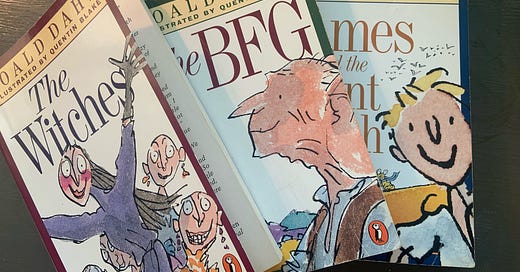


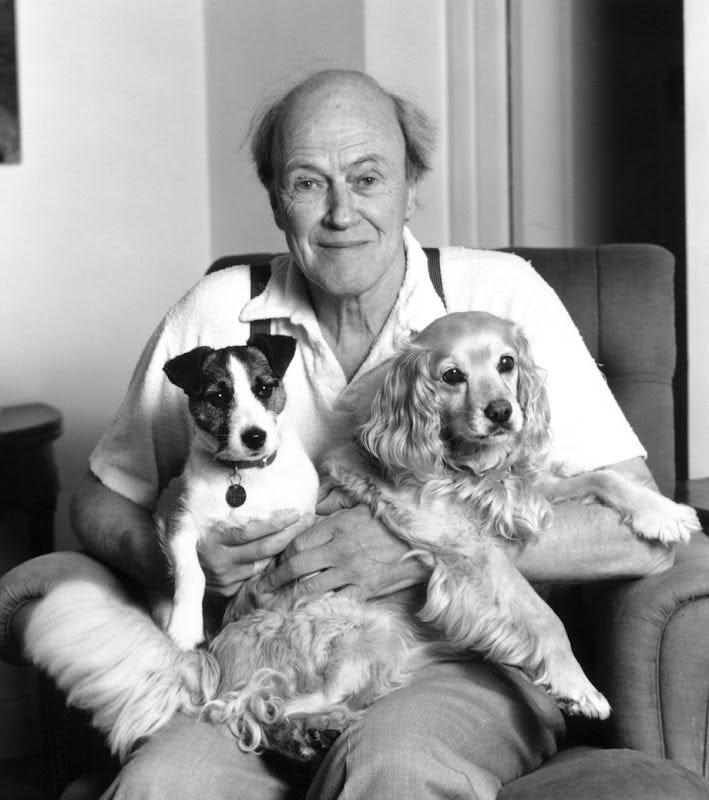

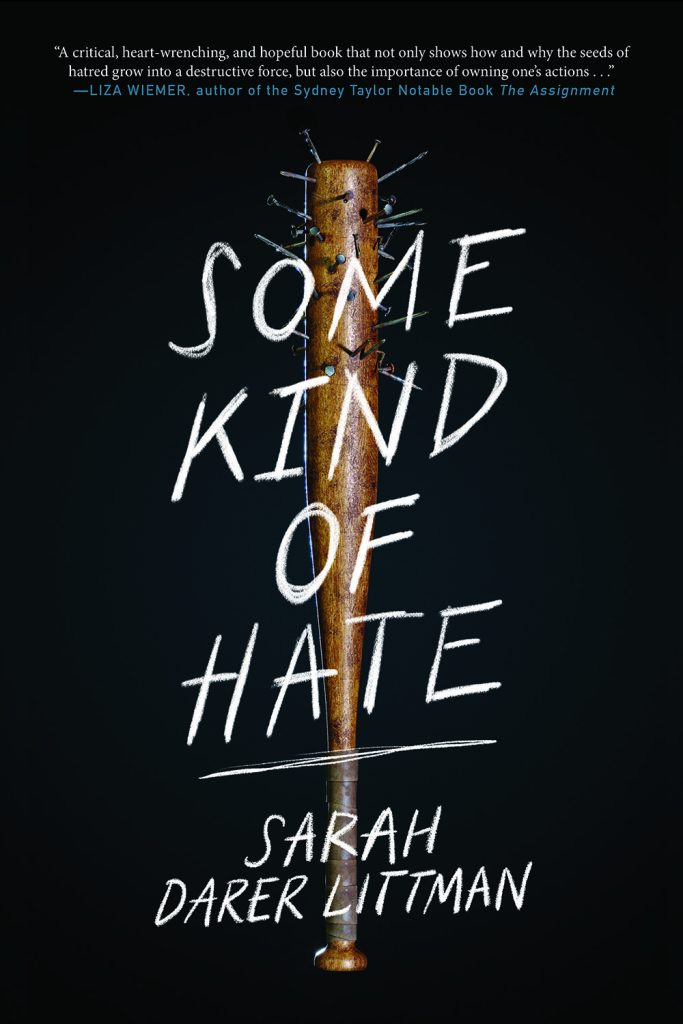
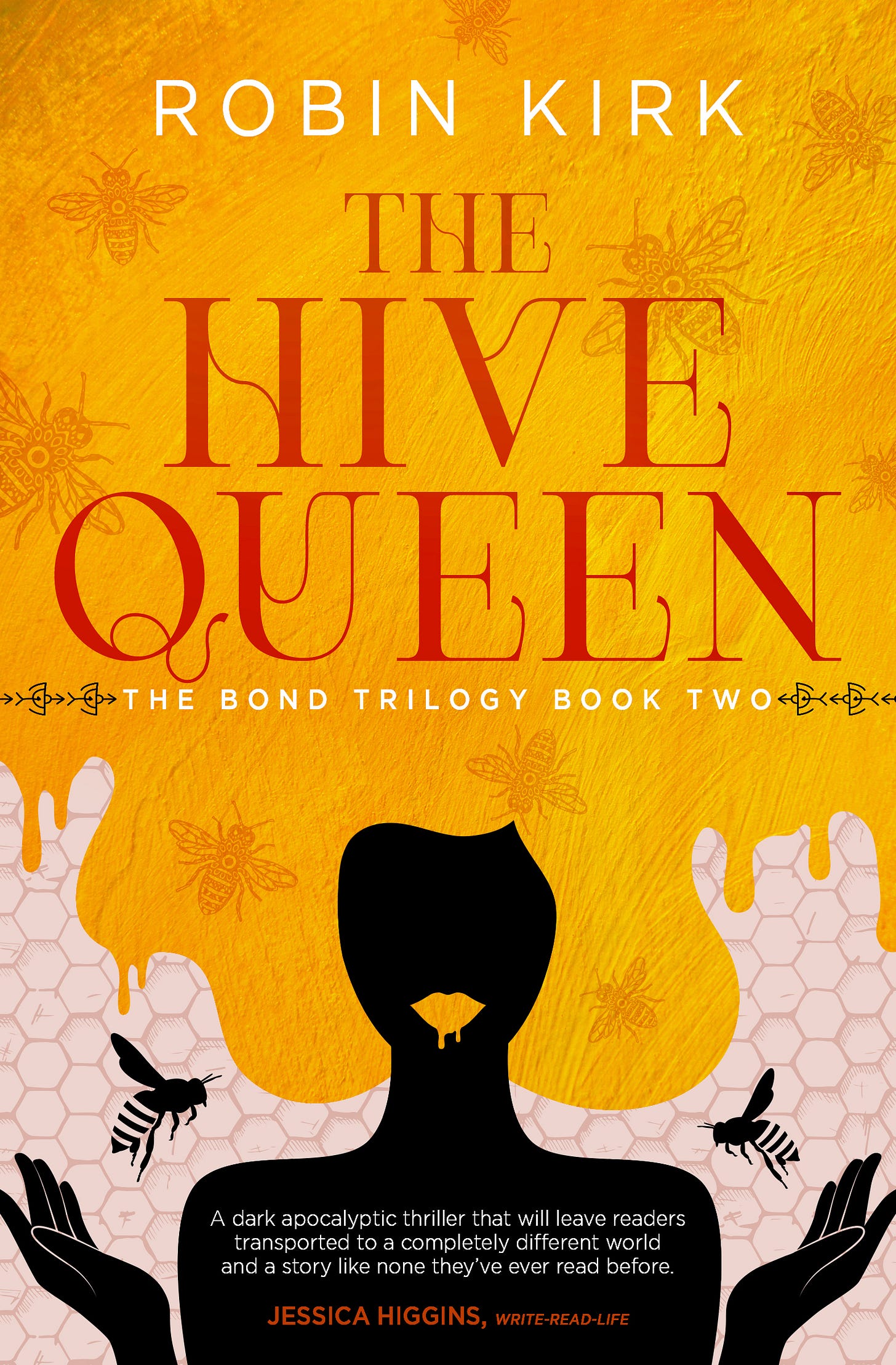
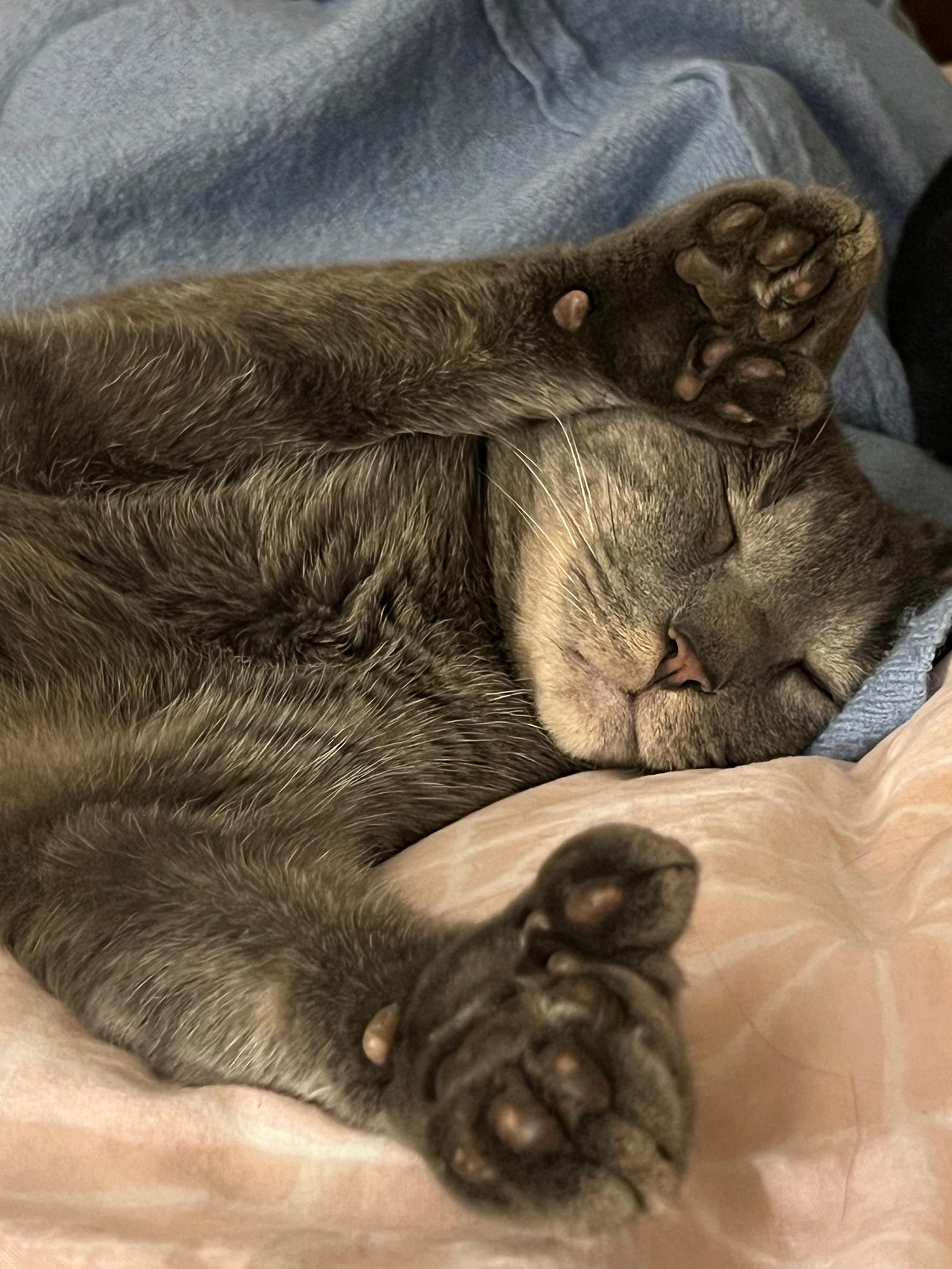
Terrific blog post! Thanks!